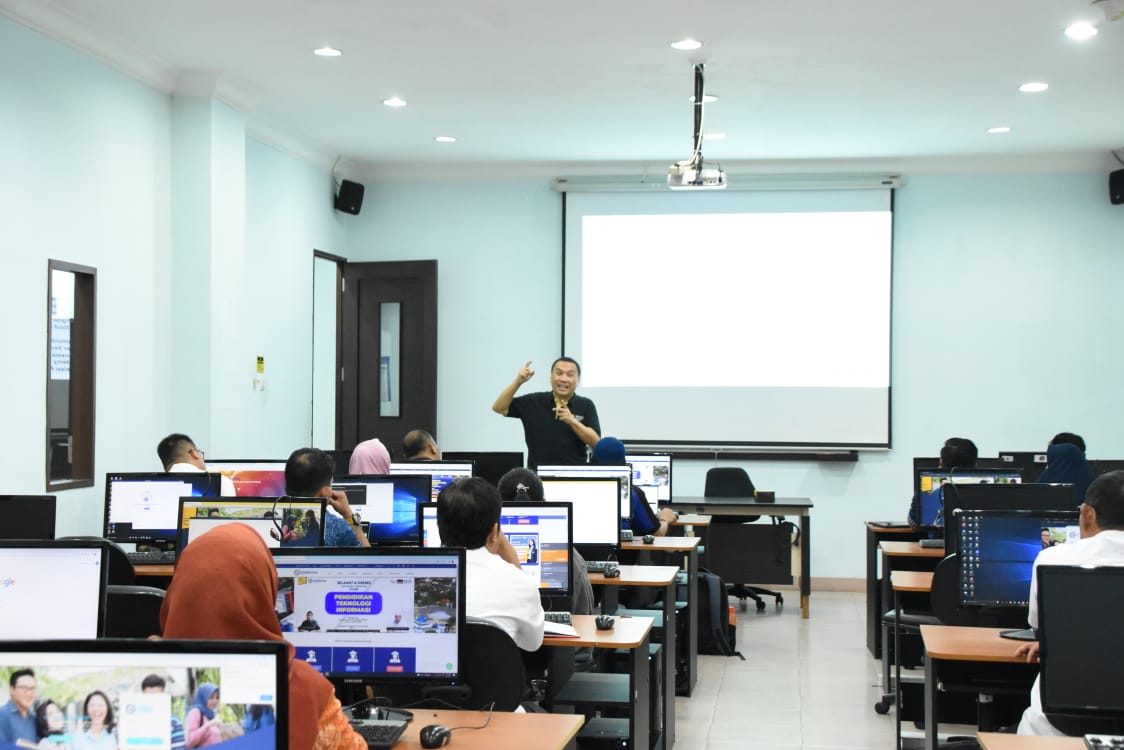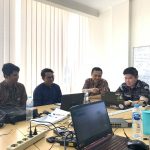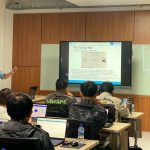With the increasing security threats in cyberspace, monitoring potential threats is important for planning defense in cyberspace. Therefore, in order to increase awareness of these cyberthreats, the SGU Information Technology Master Program held a workshop “Network Security: Knowing Your Honeypot and Analyzing the Data” for campuses in various cities in Indonesia.
On January 27 2023, the workshop led by Dr. Charles Lim, BSc., MSc., as secretary of the SGU Master of Information Technology study program held at Putera University Batam. On 2 February 2023 it was held at IIB Darmajaya Lampung, and 16 February 2023 at Bina Darma University Palembang.
To note, Honeypot itself is a server or network system that is installed as bait to lure hackers when they are about to make an attack or hacking attempt. Honeypots are designed to look like attractive targets and are placed around real servers. So that it can trick hackers and attack the wrong targets.
As well as being able to outwit the targets of hacker attacks, a honeypot can also help you predict an attack at an early stage and provide the necessary response. Once the attack enters the honeypot trap, important information about the type of attack and the method used can be collected. The collected information can be used to anticipate the next attack and protect the system from the attack.
Dr. Charles Lim, BSc., MSc., as Secretary of the SGU Information Technology Study Master Program said, “There are 3 things that I want to share with campuses in this workshop. First: how to install honeypot, then secondly how to visualize the data, and lastly how to analyze the data.”
Honeypots are made as similar as possible to computer systems or services in general, complete with applications and data that can attract the attention of hackers. Like for example a honeypot that mimics a company’s financial system services or other services.
To attract the attention of hackers, honeypots are deliberately made vulnerable so that they are easy to attack. This is done by deliberately opening a port or application service that is intentionally made vulnerable to attack. With the opening of the port or service, hackers are provoked to attack it.
Dr. Charles Lim, BSc., MSc., also added that the purpose of holding this workshop is for campuses in Indonesia to participate in anticipating cyber threats. In addition, as an increase in competence and knowledge in the field of network security for students and lecturers.
This workshop is the result of collaboration and joint research for more than 3 years with a partnership between Honeynet Indonesia Chapter (IHP), Swiss German University (SGU) and the National Cyber & Crypto Agency (BSSN). This is also an expansion of the ISIF Asia research grant allocated since 2019.










